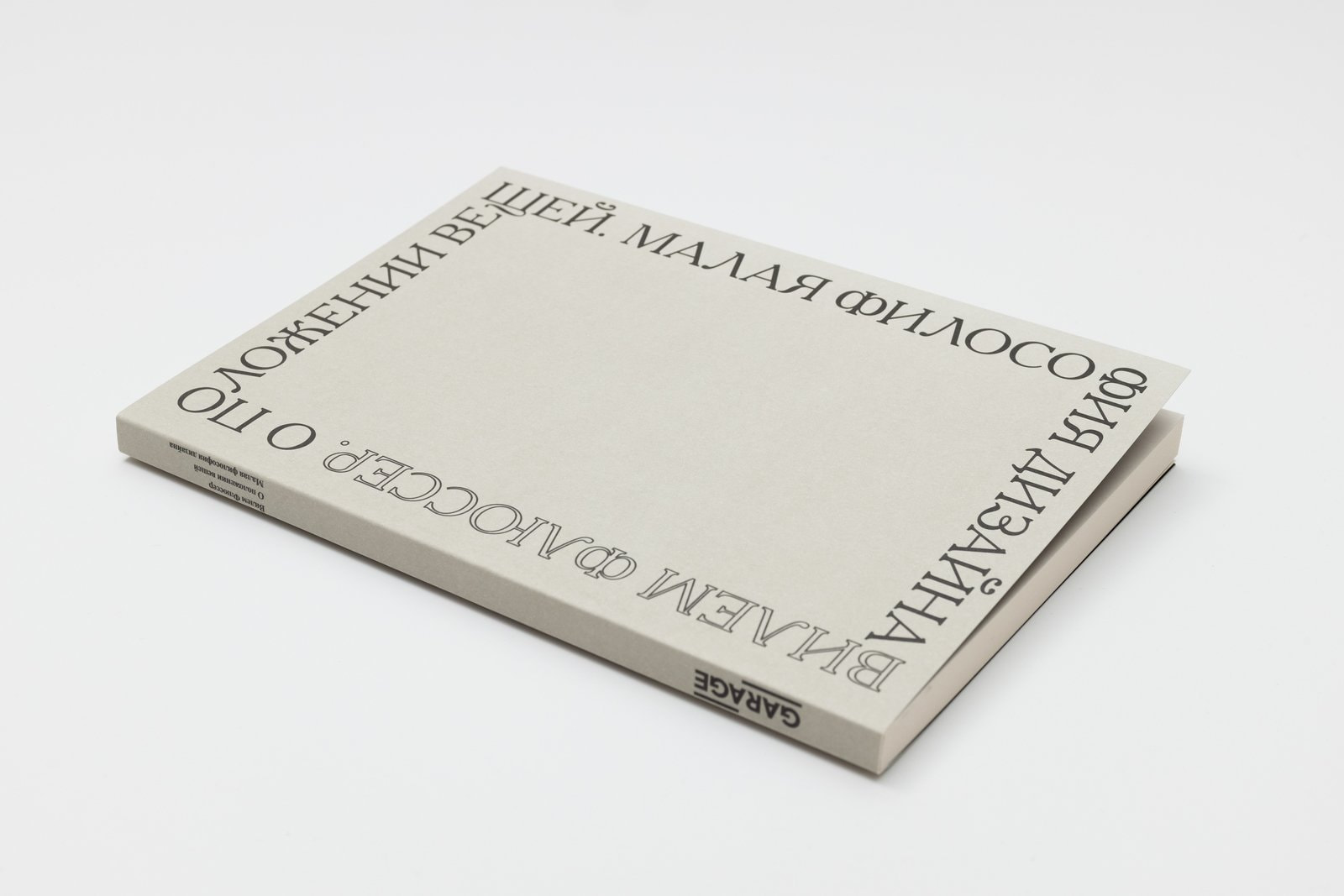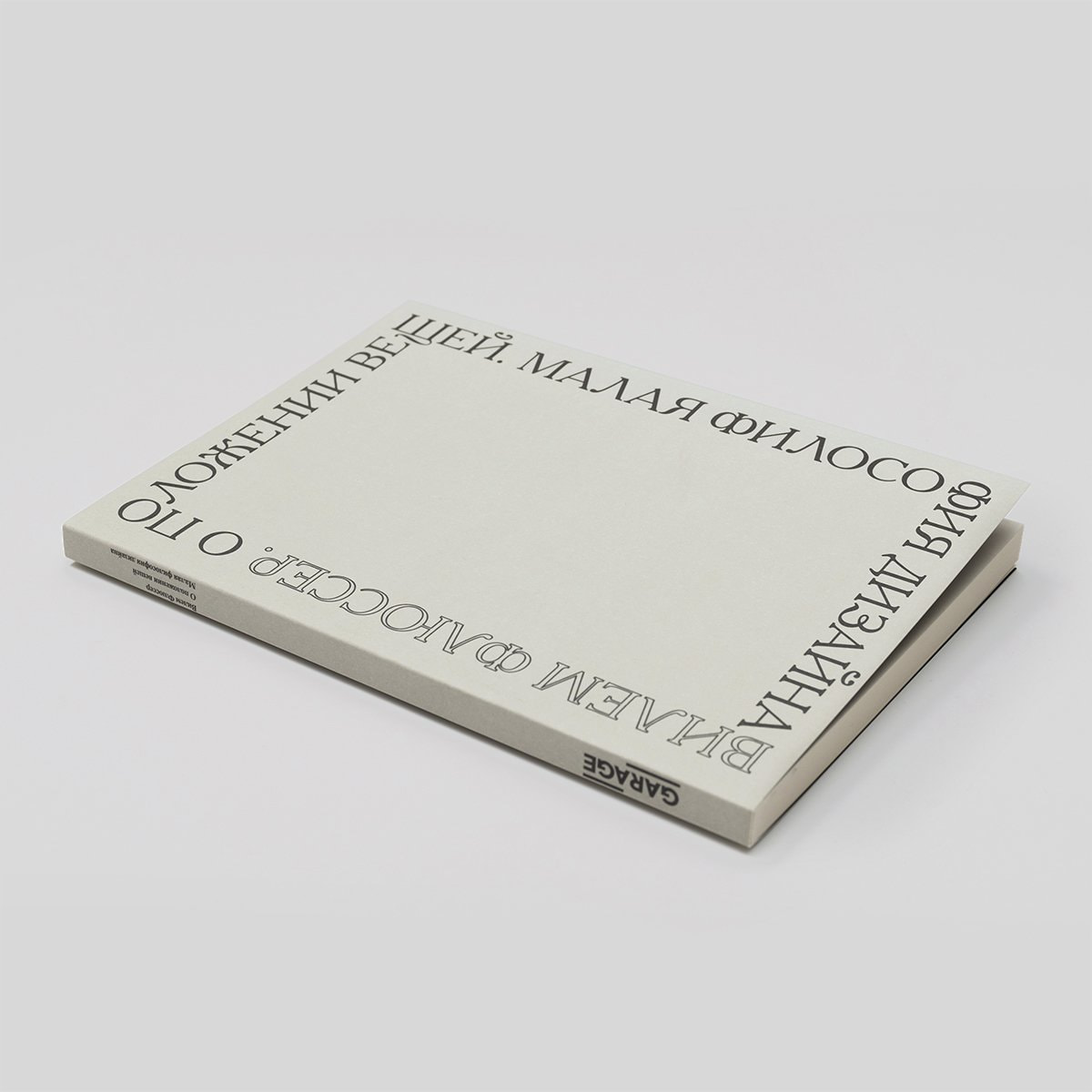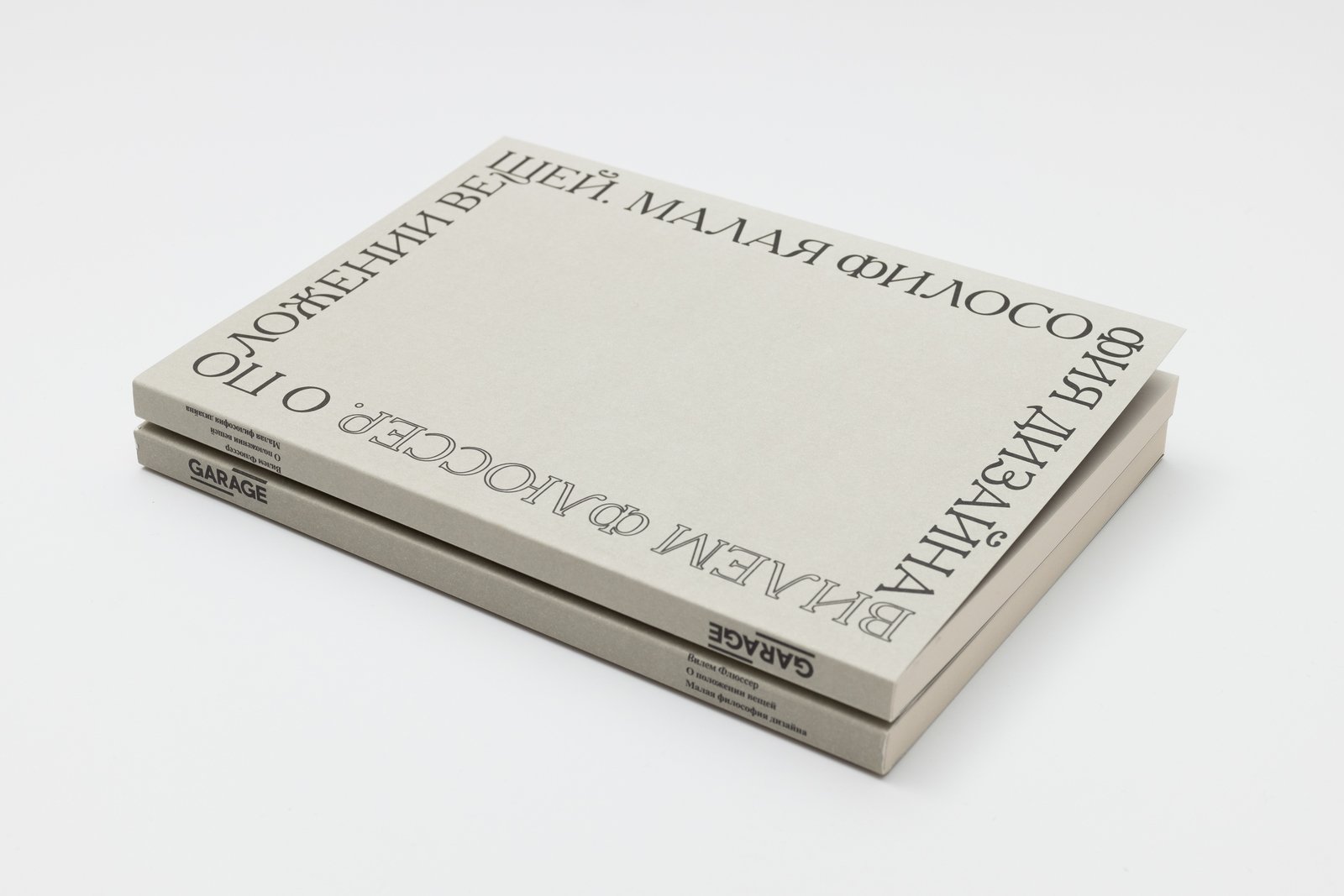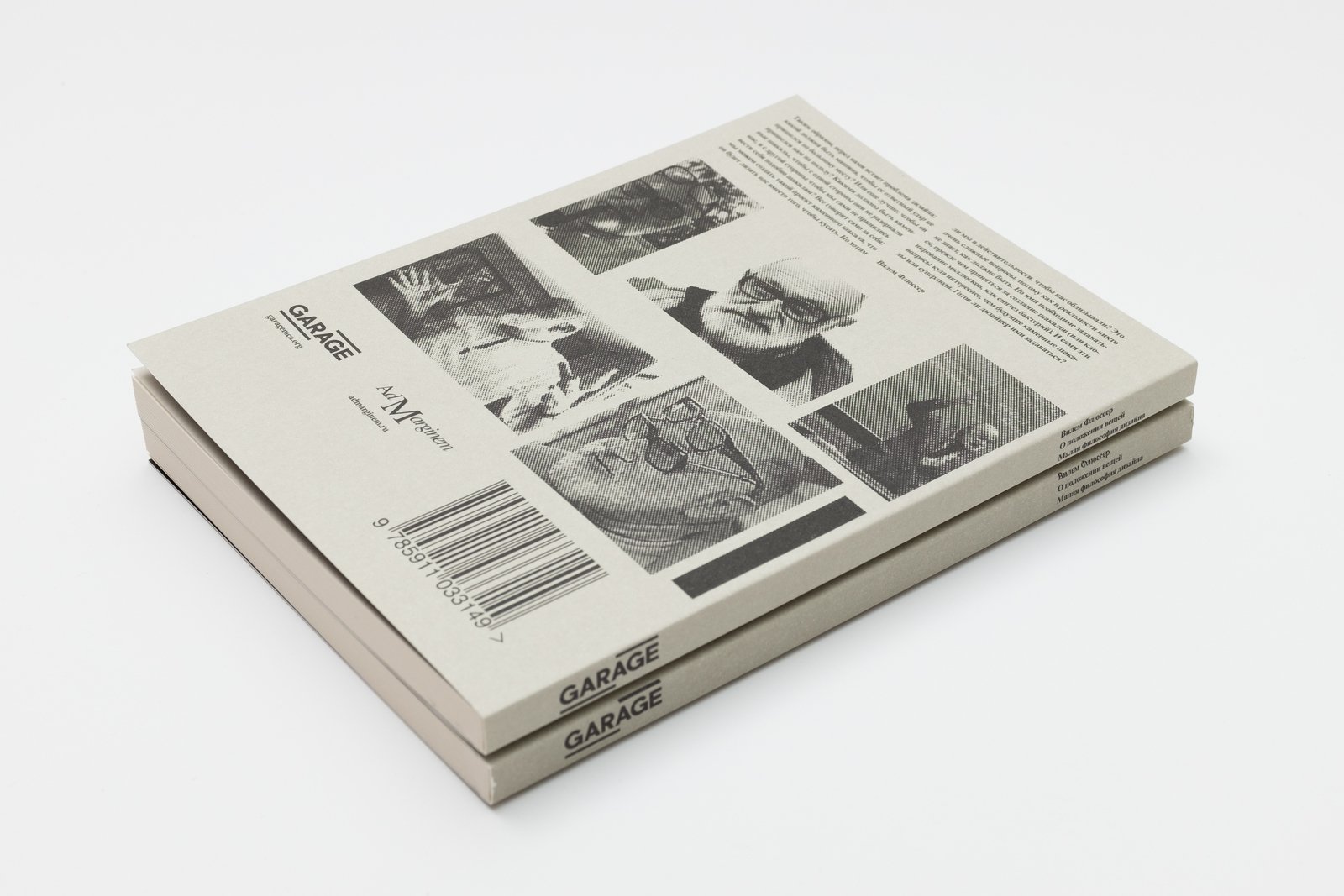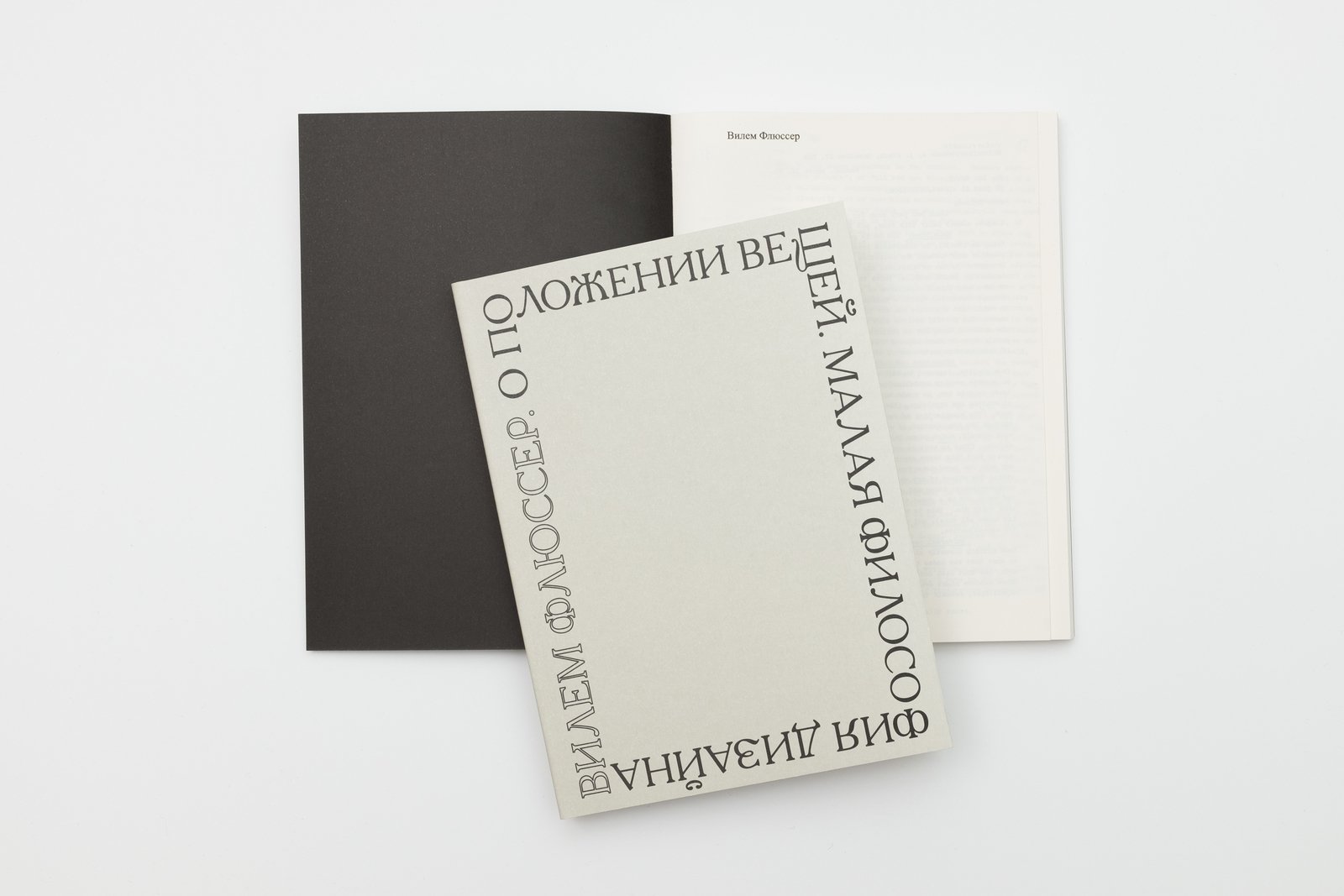‘We are creatures of reflection and speculation. We can therefore do something the caveman could not do: develop a philosophy of culture. And culture appears to us in the form of a steadily growing collection of things…’
With all essays published in Russian for the first time, this collection by the Czech-born culture and media theorist Vilém Flusser is entirely devoted to his phenomenology of things. ‘One can look at things in at least two ways,’ Flusser writes, ‘by observing and by reading. If one observes things, one sees them as phenomena.’ To him, an umbrella, a carpet, a wheel, a computer, and a portable radio are all artifacts of equal importance, each offering an insight into the culture of a certain era.
Flusser sees design as a way of giving form to the ‘formless chaos’ that is the world before our intervention. The design he speaks of is not utilitarian design, but design in the broadest sense—from the production of a clay pot on a potter’s wheel to the making of a universal man of the future. ‘Design means, among other things, fate,’ he explains. ‘This process of asking questions is the collective attempt to seize hold of fate and, collectively, to shape it.’
According to Flusser, who died in 1991, his contemporaries were already witnessing the beginnings of a new industrial revolution and a shift from the economy based on the production of things, to an economy based on the production of non-material information, where humans exist by the means of their fingertips, pressing keys to play with symbols—a vision of contemporary culture resonating with the ideas of Michel Serres, whose Thumbelina was recently published in the Garage Minima series.
